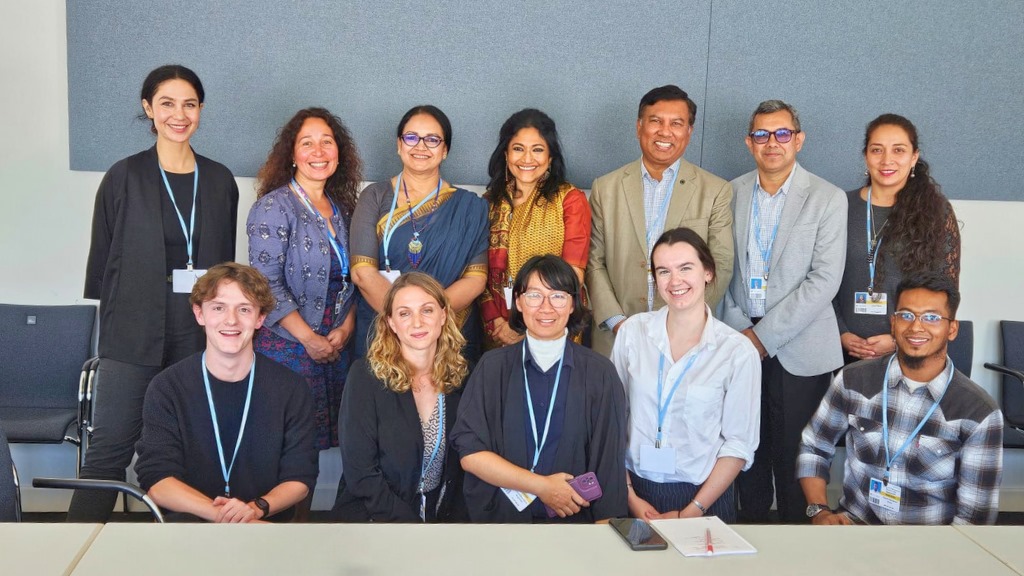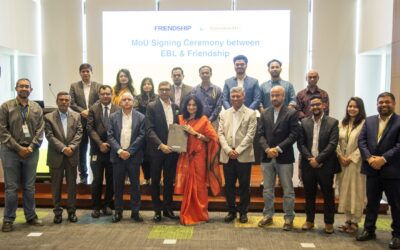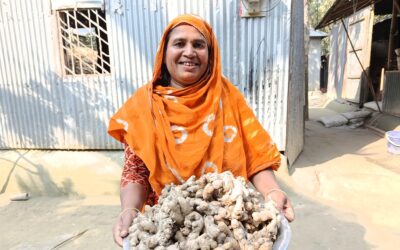Listening to local solutions, indigenous values and voices

by Kingbadantee Sabir,
June 10, 2024
A collaborative meet-up on climate action was organised by Friendship on June 6 during the UNFCCC SB60, better known as the Bonn Climate Conference, held at UNFCCC headquarters every year in June. This informal meeting brought together a diverse group of climate practitioners from NGOs, INGOs, universities, and researchers.
This gathering facilitated a vibrant exchange of ideas and experiences aimed at discussing solutions for a livable future and sharing insights on climate adaptation. Over several days of intense discussions and workshops, participants from different backgrounds and regions shared their unique perspectives and expertise. The synergy created by this diverse assembly underscored the necessity for interdisciplinary approaches and highlighted several critical areas requiring immediate and collaborative efforts to combat the multifaceted challenges posed by climate change.
Empowering Youth for Climate Action
The role of youth in climate action was a major focus of the discussions. Empowering youth and creating strong bonds between young people and local communities was deemed to be of paramount importance. From Europe to Asia, the role of youth flood volunteers shone through.
The recent youth-led recovery efforts during the German floods served as a powerful testament to the impact that young people could have. A consensus was reached at the IFCCC SB60 conference event that to harness this potential fully, channelling more funding and resources towards youth empowerment initiatives was essential.
Addressing Loss and Damage Finance from Different Angles
A major concern raised within the discussion was the persistent procrastination by developed countries in fulfilling their pledges for loss and damage finance. There was an agreement on participants having observed a tendency among developed countries to merely shift and rename humanitarian or development funds as adaptation or loss and damage funds whereas climate finance should always be additional to the Official Development Assistance (ODA). This shift ultimately leads to a failure both in development aid and in adaptation actions to address correctly the actual needs of those suffering the most.
Furthermore, there was a common resonance for the need of more clarity in the definition and quantification of the losses, and on the importance of including secondary and tertiary losses in global negotiations, as these are often overlooked. Secondary losses are indirect impacts occurring shortly after an event, such as business closures and stress-related illnesses. Tertiary losses are long-term consequences like persistent unemployment, chronic mental health issues, and loss of social networks.
The disproportionate effects of climate change on the youth, especially academic dropouts and child marriages exacerbated by climate-induced displacement, were brought to the fore by Rabia Abba. Displacement and migration, especially in the global south, were also recognised as significant yet underrepresented issues. The monetisation and inclusion of the losses in the climate negotiation process were labelled crucial by the participants. Addressing these social impacts is critical for holistic climate action as they are more often overlooked since they are non-economic.
The Santiago Network‘s role in providing technical assistance and sharing knowledge on loss and damage was extensively discussed. Addressing how these resources would be distributed to local organisations responsible for implementation was deemed crucial during the discussion. The volume of the Loss and Damage Fund was another critical topic during the SB60 conference. Discussions on claims from various countries indicated that trillions of dollars were needed to address the issue adequately, highlighting the scale of financial requirements and the necessity for substantial international support. Participants also emphasised the importance of integrating food systems and water management into climate strategies as key components of resilience. Streamlining programs to address these critical areas can enhance overall climate resilience and ensure sustainable development. Furthermore, the necessity of including secondary and tertiary losses in global negotiations was underscored, as these are often overlooked.
Bridging the Gap Between Local Communities and Policymakers
A recurring theme was the disconnect between local communities and policymakers. Integrating local perspectives into national and global strategies is vital for effective climate action. Despite numerous policies and plans, the participants expressed a significant gap in their implementation. Participants advocated for more bottom-up approaches that prioritise local needs and experiences.
Emphasising Biodiversity in Climate Negotiations
Echoing with Friendship founder, Runa Khan’s statement at SB60 that biodiversity loss is not getting enough global attention, an extension was drawn in regions like Columbia, where it was very clear that biodiversity needs greater emphasis in global climate negotiations. A consensus was reached on protecting and preserving biodiversity being essential for sustainable climate action and that it should be a central focus in future discussions.
The meet-up ended with a powerful call for ongoing collaboration and a commitment to addressing the identified gaps and challenges. It highlighted the urgent need for action and the strength found in working together. Participants believed that by focusing on these key areas collectively, significant progress could be made towards a sustainable and equitable future for all. They departed with a renewed sense of purpose and determination to confront the pressing issues of climate change head-on.
Lastly, Kazi Amdadul Haque, head of Climate Action at Friendship, mentioned this unique initiative ‘Climate Meet up’ at SB60 emphasised that the meet-up is set to continue in future events and forums until it is solidified as a platform for expression, exchange, and endorsement, transcending beyond portfolios, formal titles and preconceived notions. The goal is for participants to leave climate events feeling fulfilled and heard, returning with the satisfaction of having expressed, exchanged, and endorsed their ideas.



